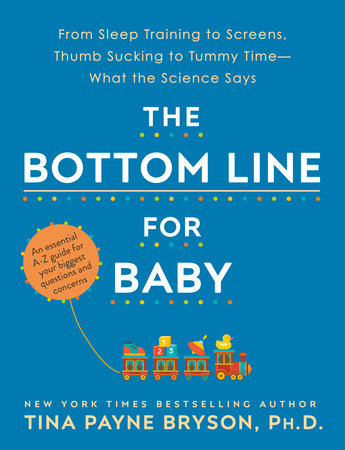6 Recommendations to Help First-Time Parents Thrive
by Dr. Tina Payne Bryson
Becoming a new parent is one of the most difficult challenges many of us will ever experience. Yes, it’s wonderful. But if anyone tells you it’s easy, they’re either lying or they’ve forgotten.
I have three children myself, and I’ve talked to thousands of parents over the years. Based on all of these experiences, I have a few tips for you, and I’ll make it quick because you likely have only mere minutes to read. I know there’s plenty that you’re trying to figure out right now, but by prioritizing these six suggestions, you can relax a little and focus on what matters most: establishing and strengthening your relationship with your child.
1. Delight in Your Baby
This is where it all begins, making sure that your little one feels your love just as much as possible. Remember, there’s no such thing as spoiling a child by giving them too much time, affection, or attention. You never have to worry about holding them too much. Babies and parents are meant to be in close contact, and parents are meant to attend to their needs. So shower your infant with your love, letting them see and feel your delight in them, in all the little things they do, and in who they are.
2. Inform Yourself
You’re probably already receiving lots of advice — both solicited and unsolicited — from family and friends. Take that information in, truly considering new ideas for how to best care for your baby. Then, add to that advice by reading and listening to the experts, discovering what the science says when you face a decision. Over time you’ll whittle down the voices to a credible handful who are worth listening to, and that are in line with your approach and values. Knowledge is power, and the more you can inform yourself, the better you’ll be able to make good decisions for your child.
3. Listen to Your Baby, Then Trust Yourself
Once you’ve gathered information, including considering your family and cultural traditions, and thought about your particular infant’s needs, then trust yourself to make the best decisions for your baby and yourself. Yes, you have your own biases and preconceptions, and it’s important to remain aware of any moments where you might not be openminded. But assuming you’ve sincerely listened to the advice of the experts and the people you trust, you can then relax and decide what makes the most sense to you. Each child, and each family, is different. There are lots of ways to be a great parent. And with your child, and in your family, you are the expert.
4. Hang in There When It’s Hard, And Savor It When It’s Good
Life can change fast, and that’s especially true in the life of a small child. Keep this in mind whether the phase you’re in with your baby is worrisome or wonderful. You two are going to go through lots of different moments together. When one of those moments is especially challenging, take a deep breath and remind yourself that it won’t last forever. When the moment is especially charming or beautiful, do all you can to fully appreciate it, knowing that something else is just around the corner.
5. Don’t Sweat the Small Stuff
I know: right now, many of the decisions you’re making for your child seem hugely significant. You may feel a lot of pressure to do the “right” thing, and you probably fear you’re going to do the “wrong” thing. That’s a natural response for caring and intentional parents. But the truth is that whether you start with veggies or fruits for those first solid foods, or whether you use cloth or disposable diapers, or whether you use a pacifier — none of that’s going to determine how your child turns out. I have good friends who raised their babies very differently from how I did — sometimes even on some larger, discipline-related issues — and we can all say years later that we all ended up with great (but not perfect) kids. Yes, some decisions are really crucial, like using car seats and observing water safety. And likewise, it’s critically important to commit to being emotionally present for your child, and to set clear and loving boundaries. But for many of the decisions, you can gather your information and make a call, knowing that the fate of the world likely doesn’t rest on what you decide.
6. Ask for Help
Finally, ask for help when you need it. Babies really benefit from having happy, engaged parents! We need time to rest, to be productive, and to have some time off from baby duty so we can be refreshed enough to show up the way we want to. A friend or family member can often step in and give you the break you need, so you can then return to your child revitalized and ready to delight in them again.

